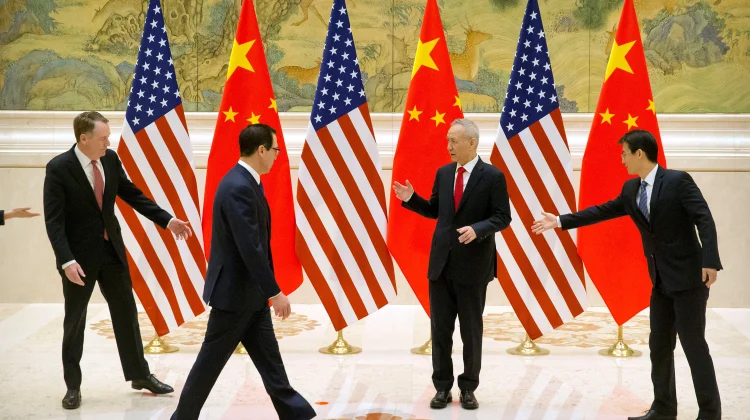
GENEVA, May 21 (Reuters) – China said on Wednesday trade talks with the U.S. were an important step toward bridging gaps but what was really needed was “indispensable” multilateralism to find a way out of global trade turmoil.
“While bilateral talks may sometimes work, China believes multilateralism is the inevitable and ultimate choice to address global challenges,” China’s mission to the World Trade Organization said in a statement at a two-day meeting of the WTO’s General Council in Geneva.
The Reuters Tariff Watch newsletter is your daily guide to the latest global trade and tariff news.
“We need to find the way out,” it added.
China and dozens of other countries were stung by a slew of so-called reciprocal tariffsannounced by U.S. President Donald Trump in April, before talks were held between the two major commercial partners on May 12 to ease tensions over trade imbalances.
China and the United States announced a trade truce, with the U.S. dropping the extra tariffs it imposed on China to 30% from 145%, while China cut its levies to 10% from 125%.
China called at the WTO council session on Wednesday for member states to stabilise trade relations and anchor trade measures under WTO rules.
“Unilateral tariffs and the threat of ‘reciprocal tariffs’ are just like adding fuel to the fire, which is simply wrong. An open, stable and rules-based international economic and trade order serves the common interests of all,” China said.
The U.S. called on members to address what it called failures in commercial relations that had caused huge trade deficits, and for urgent reform of the WTO system.
“The multilateral trading system, as currently constructed, has been unable to address the serious challenges that face the system,” a U.S. statement said. It added that WTO members had not addressed severe trade imbalances and non-market policies that it described as contrary to WTO principles.
Some 47 members sponsored a statement requested by Singapore and Switzerland at the meeting, reaffirming their commitment in support of the rules-based multilateral trading system.

Frequently Asked Questions (FAQs)
Why did China emphasize multilateralism in recent trade discussions with the U.S.?
China highlighted the importance of multilateralism during a World Trade Organization (WTO) General Council meeting in Geneva. While acknowledging the significance of bilateral trade talks with the U.S., China stressed that lasting solutions to global trade issues require collective action within the WTO framework, rather than unilateral measures. (Reuters)
What specific actions did China take to promote multilateral trade?
China actively participated in discussions at the WTO, urging all member countries to stabilize trade relations and adhere to established international trade rules. This approach aims to counteract unilateral or retaliatory tariffs and reinforce a rules-based trading system. (Reuters)
How did China respond to the U.S.’s tariff policies?
China criticized the U.S.’s imposition of high tariffs, labeling them as arbitrary and detrimental to global trade stability. In response, China advocated for the removal of these tariffs and called for a return to dialogue and cooperation under the multilateral trading system. (wto.mofcom.gov.cn)
What is China’s position on the WTO’s role in global trade?
China views the WTO as a cornerstone of the international trading system. It emphasizes the need for WTO reforms to address systemic issues while maintaining the organization’s foundational principles of fairness and inclusivity. (@RSIS_NTU)
Did other countries support China’s multilateral approach?
Yes, a joint statement by 47 WTO member states, led by Singapore and Switzerland, reaffirmed their commitment to a rules-based multilateral trading system. This collective stance underscores the global consensus on the importance of multilateralism in addressing trade challenges. (Reuters)
How does China view the relationship between trade and sovereignty?
China asserts that genuine multilateralism respects the sovereignty of all nations. It advocates for international cooperation that considers the diverse interests and development stages of countries, promoting equitable participation in the global economy. (CGTN News, CGTN)
What are the implications of China’s multilateral approach for future trade relations?
China’s emphasis on multilateralism suggests a commitment to collaborative solutions in global trade. By advocating for dialogue and adherence to international rules, China aims to foster a more stable and predictable trade environment, benefiting all nations involved. (fmprc.gov.cn)

Conclusion
China’s recent statements and actions underscore its dedication to a multilateral approach in resolving global trade issues. By promoting dialogue, adherence to international rules, and respect for national sovereignty, China seeks to contribute to a more balanced and cooperative global trading system. This perspective aligns with the broader international community’s growing emphasis on multilateralism as a means to address complex trade challenges.
